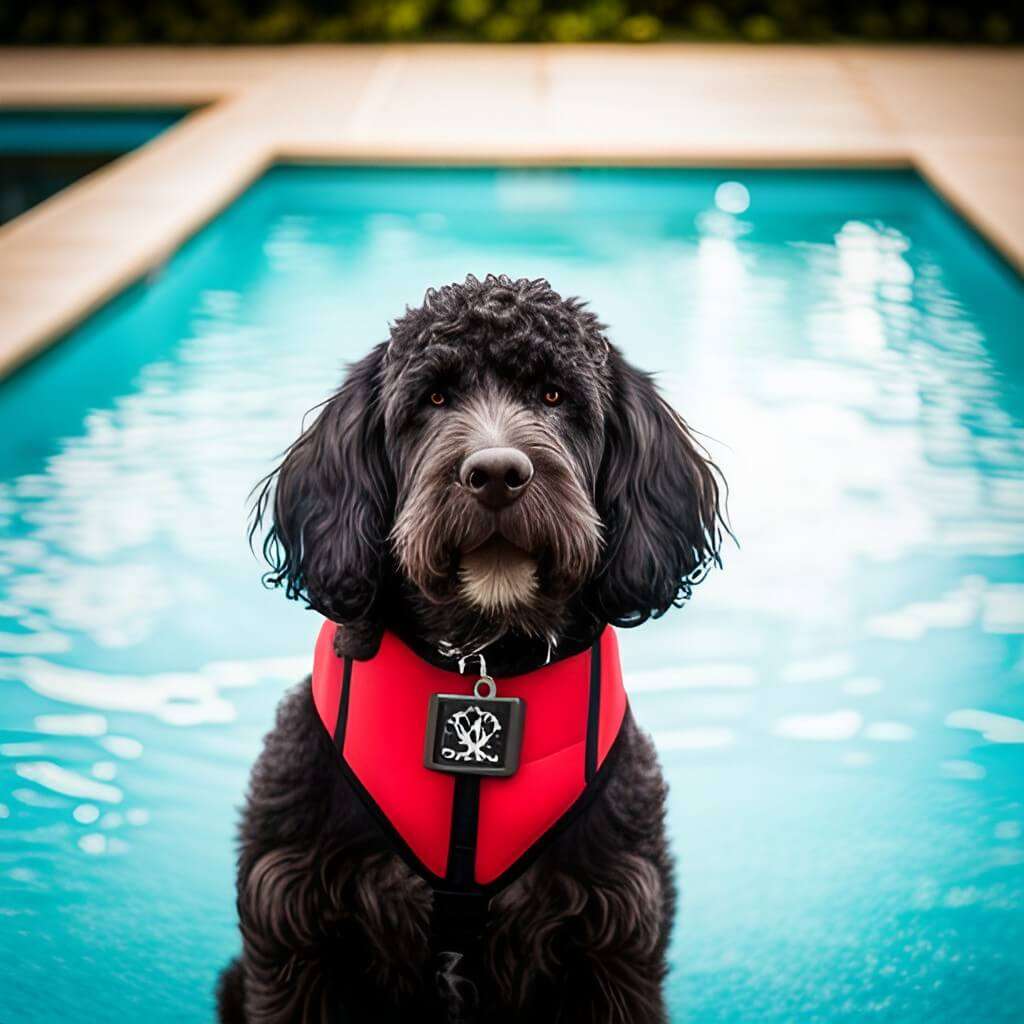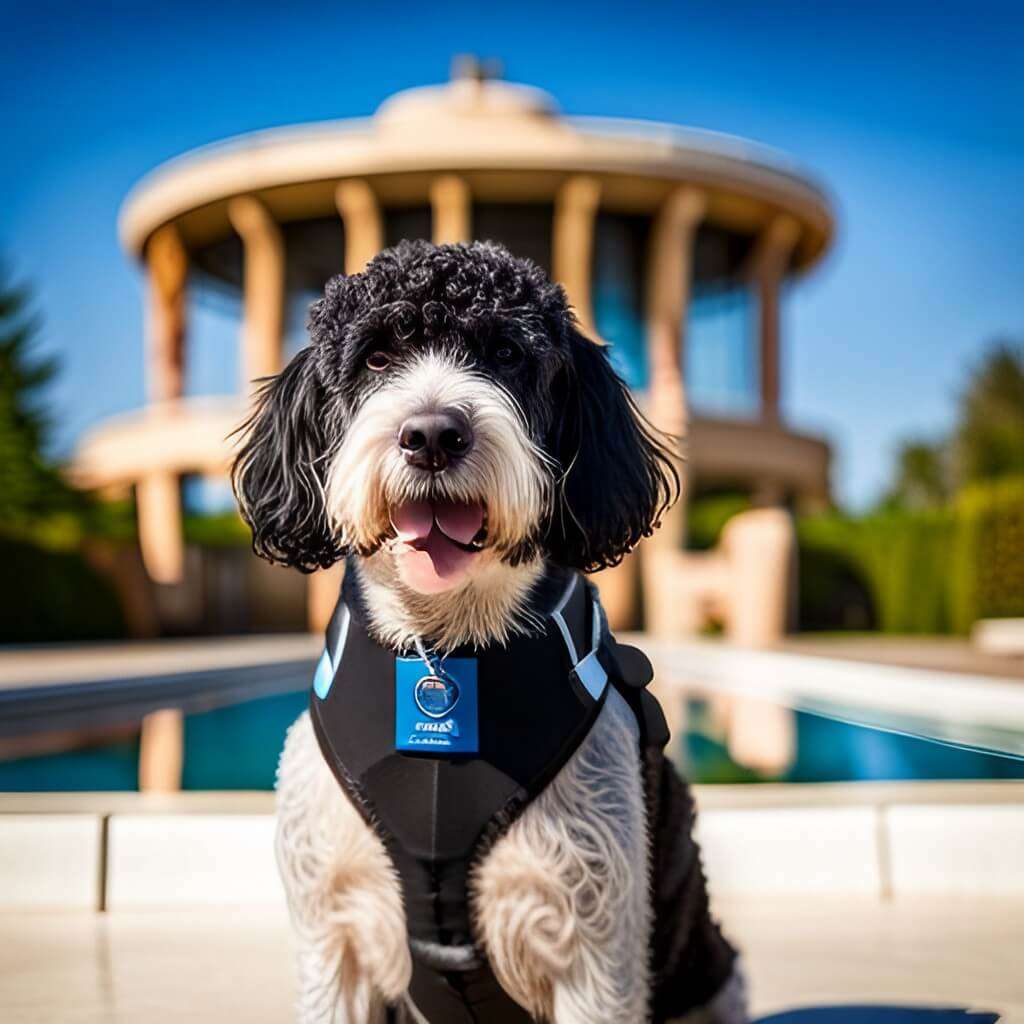Table of Contents
ToggleGPS Pet Trackers for Dogs
As a dog owner, there’s nothing more terrifying than the thought of your furry friend going missing. Thankfully, technology has provided us with a solution: GPS pet trackers.
These devices allow you to monitor your pet’s location in real-time, giving you peace of mind and extra control over their safety.
In this blog post, we’ll delve into what a GPS pet tracker is, why you might need one, and how to choose the best one for your needs. We’ll also discuss how to use a tracker effectively and share our top 5 picks.

What is a GPS Pet Tracker?
A GPS pet tracker is a device that uses Global Positioning System (GPS) technology to provide real-time tracking of your pet’s location. It typically attaches to your pet’s collar and sends information about your pet’s whereabouts to your smartphone or computer. This can be particularly helpful if your dog is prone to wandering off or if you live in an area with a high risk of pet theft.
Why Do You Need a GPS Pet Tracker?
If your dog loves exploring or has a tendency to run off, a GPS tracker can be a lifesaver. It can help you locate your pet quickly, reducing the risk of them getting lost or stolen. Even if your dog is generally well-behaved, unexpected situations like a gate left open or a scary noise can cause them to bolt.

What to Look for in a GPS Pet Tracker
When choosing a GPS pet tracker, consider the following key features:
1. Real-time tracking: This allows you to see your pet’s location in real time, rather than just where they were when they last synced.
2. Safe zones: Some trackers let you set up “safe zones” and will alert you if your pet leaves these areas.
3. Battery life: Look for a tracker with a long-lasting battery so you don’t have to worry about it dying when you need it most.
4. Durability: The tracker should be robust enough to withstand rough-and-tumble dog play.
5. Size and comfort: Make sure the tracker is an appropriate size for your dog and won’t cause discomfort.
Avoid trackers that lack these features or have poor user reviews.

Our Top 5 Picks
After extensive research, we’ve identified the top five GPS pet trackers on the market:
- The Whistle GO Explore: This tracker offers real-time tracking, health monitoring, and a 20-day battery life. It’s also waterproof and durable.
- The Link AKC Smart Collar: Besides location tracking, this collar offers activity monitoring and sound training features. It’s sleek, comfortable, and comes with a LED light for visibility.
- The Tractive GPS Dog Tracker: Known for its lightweight design, this tracker provides live tracking and unlimited range. It’s also waterproof and robust.
- The Fi Smart Dog Collar: This offers GPS tracking and fitness monitoring. It boasts an impressive battery life of up to three months.
- The Garmin T5 GPS Dog Collar: A high-sensitivity GPS with GLONASS, this is perfect for hunting and sporting dogs. It’s rugged, waterproof, and has a range of up to 9 miles.

How to Use a GPS Pet Tracker
Once you’ve chosen a tracker, you’ll need to set it up. This usually involves downloading an app, creating an account, and syncing the tracker with your phone. You can then attach it to your dog’s collar.
To track your pet, open the app and check their location. Some trackers also allow you to track your pet’s activity levels and health information.
Remember to charge the tracker regularly and check the app frequently, especially if your dog is unsupervised. Most trackers are designed to minimize data usage but check your provider’s terms just in case.
GPS Pet Trackers for Dogs
A GPS pet tracker is an invaluable tool for any dog owner, providing peace of mind and an extra layer of security for your beloved pet. By considering key features and understanding how to use these devices effectively, you can ensure that you’re always connected with your canine companion, no matter where they roam.

FAQ: GPS Trackers for Dogs
Q1: What is a GPS tracker for dogs?
A1: A GPS (Global Positioning System) tracker for dogs is a device that uses satellite technology to pinpoint the location of your dog. It’s usually attached to your dog’s collar and sends real-time location updates to your smartphone or computer, allowing you to track your pet’s movement.
Q2: What types of GPS trackers are available for dogs?
A2: There are three main types of GPS trackers for dogs:
- Data-connected GPS trackers: These use cellular networks to send location data to your device. They require a monthly subscription as they use the same data services as mobile phones.
- Radio GPS trackers: These do not require a data connection but use radio frequencies instead. They’re often used by hunters and have a longer range than data-connected devices.
- Bluetooth trackers: These are short-range devices, suitable for finding pets within a small area like your home.
Q3: What features should I look for in a GPS tracker for dogs?
A3: Consider the following features when choosing a GPS tracker:
- Real-time tracking: This allows you to see your dog’s movement in real time.
- Safe zone settings: This feature alerts you if your dog leaves a designated area.
- Waterproof: This is important if your dog loves swimming or if you live in a rainy area.
- Battery life: Look for a device with a long battery life so you don’t need to charge it regularly.
- Size and weight: The tracker should be light and comfortable for your dog to wear.
Q4: How do I choose the best GPS tracker for my dog?
A4: The best GPS tracker for your dog depends on your specific needs. If you’re often out with your dog in wide, open spaces, a radio GPS tracker might be best. If you’re in a city, a data-connected GPS tracker could be more suitable. Consider your dog’s size too. Smaller dogs will need a light, compact device.
Q5: Can a GPS tracker replace a microchip?
A5: No, a GPS tracker can’t replace a microchip. A microchip is a permanent method of electronic identification implanted under your pet’s skin. It doesn’t have GPS capabilities but can provide essential information to vets or shelters if your pet gets lost. A GPS tracker, on the other hand, helps you locate your pet in real time.
Q6: Are GPS trackers safe for dogs?
A6: Yes, GPS trackers are generally safe for dogs. However, ensure the tracker is not too heavy for your dog and that it’s securely attached to avoid any discomfort or risk of choking.
Q7: Can I track my dog’s activity with a GPS tracker?
A7: Some GPS trackers come with activity tracking features, allowing you to monitor your dog’s daily physical activity and health status. This can help you keep an eye on their exercise levels and overall wellbeing.
Q8: Do GPS trackers for dogs require a subscription?
A8: Data-connected GPS trackers usually require a monthly subscription due to the cellular data they use. However, some brands offer free limited services. Radio and Bluetooth trackers usually don’t require a subscription.
Remember, when choosing a GPS tracker for your dog, consider your specific needs and circumstances to ensure you choose the most suitable device.

GPS Pet Trackers for Dogs
So, GPS pet trackers for dogs give us humans the power to make sure our canine friends stay safe no matter where they are. In order to have that peace of mind and a piece of safety net it’s essential for every dog owner to seriously consider investing in a GPS tracker.
Whether you prefer a collar and attachable tag or something more advanced with dedicated infrastructure, there is something perfect just made for you and your pup. With some research you can find one within your budget without going overboard.
Plus, the technological advancements with these devices are simply incredible!
It’s finally time to get a GPS, so are you getting a GPS this season? If so, let me know in the comments about your shopping experience.
In any case safety first with our furry friends. Don’t wait until it’s too late and take the necessary steps today!







